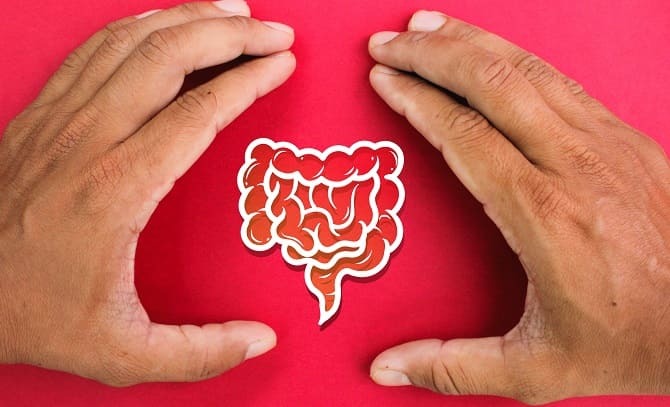
 Data Structure
Data Structure Networking
Networking RDBMS
RDBMS Operating System
Operating System Java
Java MS Excel
MS Excel iOS
iOS HTML
HTML CSS
CSS Android
Android Python
Python C Programming
C Programming C++
C++ C#
C# MongoDB
MongoDB MySQL
MySQL Javascript
Javascript PHP
PHP
- Selected Reading
- UPSC IAS Exams Notes
- Developer's Best Practices
- Questions and Answers
- Effective Resume Writing
- HR Interview Questions
- Computer Glossary
- Who is Who
What is the full form of IBS?
Introduction
Irritable Bowel Syndrome (IBS) symptoms might differ in intensity and frequency, as well as from person to person.

While some IBS sufferers may only have minor symptoms, others may have more serious symptoms that have a big influence on their everyday lives. Common symptoms of IBS include
Abdominal pain or cramping The most prevalent and annoying symptom of IBS is frequent abdominal discomfort or cramping. A bowel movement may help to ease the pain or discomfort, which can range in intensity from mild to severe.
Bloating Abdominal bloating is a common symptom of IBS and can cause a full or inflated stomach.
Gas IBS patients frequently have excessive gas, which can make them feel bloated and uncomfortable.
Diarrhoea Some IBS sufferers experience regular loose stools or diarrhoea, which may be accompanied by a strong desire to urinate
Causes of IBS
Although the precise aetiology of IBS is not entirely understood, there are a number of variables that might have a role in its emergence. These factors include
Abnormal muscle contractions in the intestine To transport food and waste through the digestive system, the muscles in the walls of the intestine ordinarily contract and relax in unison. These contractions may be too powerful or too weak in persons with IBS, which can result in food passing through the intestines too rapidly or too slowly.
Nervous system dysfunction In order to coordinate digestion, the stomach and brain typically interact with one another. This communication may be impaired in those who have IBS, resulting in atypical feelings like discomfort or bloating
Inflammation According to several studies, some people's development of IBS may be influenced by low-grade intestinal inflammation.
Infection Following a case of gastroenteritis or another intestinal infection, some persons get IBS. Post-infectious IBS is the term used for this.
Diagnosis of IBS
Since there are no particular tests or biomarkers for IBS, diagnosing the disorder can be difficult. Instead, a combination of clinical symptoms and the exclusion of any other probable explanations are typically used to make the diagnosis of IBS.
A complete medical history and physical exam are often performed by a healthcare professional to diagnose IBS. In order to rule out other possible causes of the symptoms, such as inflammatory bowel disease, celiac disease, or colon cancer, they may also conduct specific testing. These tests might involve a colonoscopy or other endoscopic procedures, as well as blood and stool testing, imaging investigations, and imaging tests.
A person must experience recurring stomach pain or discomfort for at least three days each month over the previous three months, which must be accompanied by two or more of the following symptoms to fulfil the diagnostic criteria for IBS:
Declining with urination
Beginning as a result of an increase in bowel frequency
Onset brought on by a change in the shape or appearance of the stools
The medical professional will generally also take into account the frequency and pattern of symptoms, as well as any other pertinent elements including stress, food, and family history.
Treatment options for IBS
IBS has a number of treatment options; however the most effective strategy will depend on the patient and their particular symptoms. IBS treatments include the following
Lifestyle modifications Some lifestyle adjustments may be able to reduce the symptoms of IBS. For instance, consistent exercise, stress reduction strategies, and dietary adjustments (such avoiding trigger foods or increasing fiber intake) may all benefit some people with their symptoms.
Medication Several different types of medicines, such as antispasmodics (to lessen cramping and stomach discomfort), laxatives (to cure constipation), and antidiarrheal drugs (to treat diarrhoea), may be used to treat the symptoms of IBS. Antidepressants, which reduce stomach discomfort and elevate mood, and probiotics, which restore the proper balance of gut flora, are two other drugs that may be utilised.
Behavioural therapy By treating underlying psychological issues that may be causing the illness, cognitive-behavioural therapy (CBT) and other types of psychotherapy may assist to relieve IBS symptoms.
Alternative therapies Acupuncture and hypnotherapy are two alternative treatments that some IBS sufferers may find beneficial.
Medical devices The IB-Stim gadget, for example, applies mild electrical stimulation to the nerves in the ear to treat the symptoms of IBS.
Lifestyle changes for managing IBS
There are several lifestyle changes that may help to manage symptoms of IBS. These include
Regular exercise Regular physical activity can assist with IBS symptoms by lowering stress and encouraging regular bowel movements.

Stress management Finding techniques to handle stress may be beneficial because both stress and worry can make IBS symptoms worse. For some people, methods like deep breathing, meditation, and yoga may be helpful.
Adequate sleep A sufficient amount of sleep is essential for good health and can also aid with IBS symptoms.
Hydration Maintaining enough hydration is crucial for general health and may also aid with IBS symptoms. Aim to consume 8 to 10 glasses of water each day.
Regular meals Eating regular meals and snacks may help to control bowel movements and lessen IBS symptoms. For some people, eating often or in excess might make symptoms worse.
Conclusion
Around 10-15% of individuals globally suffer with IBS, making it a widespread ailment. It is more frequent in women than males, and tends to develop in adults under the age of 50. Although there is no known treatment for IBS, there are many options that can help manage the symptoms. Changes to one's diet and way of life, such as consuming more fiber, staying away from particular foods that trigger cravings, and lowering stress, may be among them. Additionally, medications may be administered to treat certain symptoms, such as antispasmodics for gastrointestinal discomfort and laxatives for constipation. Cognitive-behavioural therapy and other forms of psychotherapy can also be helpful for some people with IBS.
FAQs
Q1. Can exercise help with IBS symptoms?
Ans: Yes, regular exercise can help to reduce stress and encourage regular bowel movements, which can help to improve IBS symptoms.
Q2. Is it safe to take over-the-counter medications for IBS?
Ans: Over-the-counter drugs like laxatives, antispasmodics, and anti-diarrheal pills can be used to treat IBS symptoms, but it's vital to consult a doctor before beginning any new treatment.
Q3. Can IBS be prevented?
Ans: A good diet, staying hydrated, controlling stress, and engaging in regular exercise are all lifestyle modifications that may help to manage symptoms of IBS even though there is no proven method to avoid the condition.

